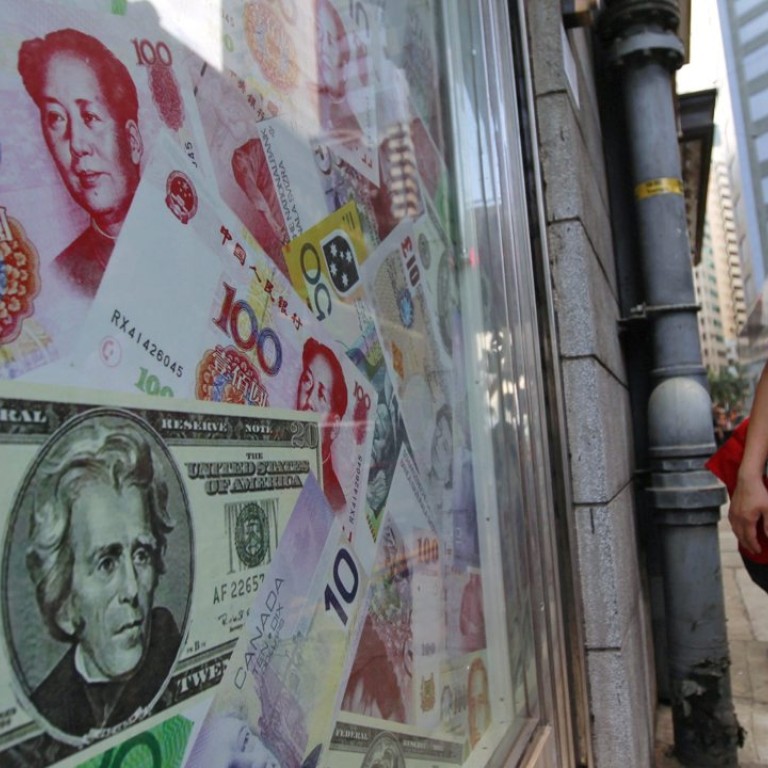
New | China’s offshore yuan hits record low as currency seen falling 10 per cent in 2016
Offshore yuan touches 6.7511 to the dollar, the lowest on record since the market on the currency was launched in October 2010
China’s offshore yuan tumbled on Thursday to its lowest level against the US dollar since the market on the currency was launched in 2010, with analysts forecasting the currency may well fall 10 per cent this year after dropping 2 per cent in the first four trading days of 2016.
The analysts feel a further devaluation of the yuan would benefit China’s sputtering economy but a weak yuan would hurt the stock market and lead to capital outflows from the world’s second largest economy.
The offshore yuan traded as low as 6.7511 on Thursday, the lowest on record since the market that allowed international investors to trade the offshore yuan mainly in Hong Kong was launched in October 2010.
Below is a 10-year chart of the yuan:
The currency bounced back to 6.6839 at noon but the currency is still down 1.76 per cent in the first four trading days of this year and down 7.44 per cent over the past six months.
On the other hand, the onshore yuan traded by mainland Chinese traders, was also weaker by 0.55 per cent to trade at 6.5921, its weakest level since December 2010.
This came after the People’s Bank of China set the mid-price fix weaker for the eight day in a row by 0.5 per cent or 332 basis points to 6.5646. After its surprise devaluation on August 11, the PBOC has set the mid-price to reflect market conditions by using the previous closing price of the onshore yuan.
Jasper Lo Cho-yan, a director of Tung Shing Futures, said the falling yuan is happening after a strong US dollar and worries over the Chinese economy.
“There was panic selling of the yuan at the beginning of this year as all believe the currency will go down further this year. The PBOC obviously intervened in the market which has led the yuan to bounce back before the lunch break but the central bank would not fight against market forces as all believe the yuan will get weaker,” Lo said.
“The yuan may well go down 10 per cent this year, after a devaluation of over 5 per cent last year. This would benefit exporters and industrialists as a cheaper yuan would increase their competitiveness. However, the devaluation of the yuan would hurt the mainland stock markets’ performance and would lead to capital outflows out of the country,” he added.

